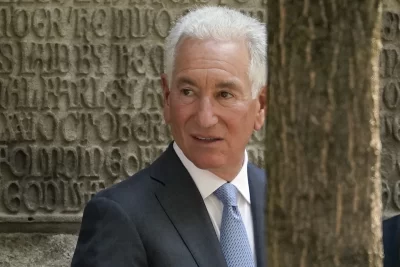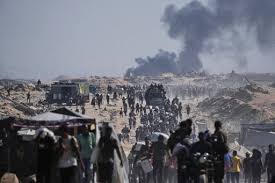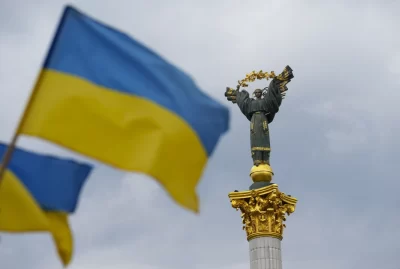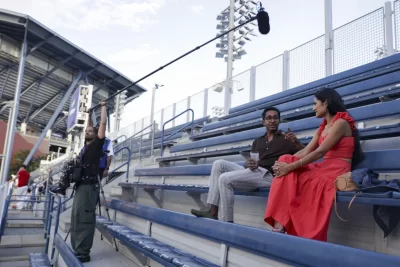
Bayan Khateeb knows she’s a terrible cook. So when she managed to pull off a dish of cooked tomatoes and eggs, she took a photo to show friends on social media.
“Soon we shall eat the Shakshouka of victory!” crowed her caption, which included an emoji of the Palestinian flag.
Khateeb intended the Oct. 8 Instagram post as a joke, she said. But in the fraught atmosphere that has gripped Israel since Hamas’ Oct. 7 attack, statements that might have once sounded innocuous have taken on more sinister meaning and resulted in scores of arrests.
“I felt like I was in a nightmare. You’re arresting me, after I was subjected to two weeks of political persecution?” she said. “How did I end up in this situation?”
Palestinian citizens have also reported intimidation, firings and expulsions from universities, as well as surveillance of their online speech by other civilians.
“People are arrested for anything expressing sympathy for the civilian victims in Gaza,” said lawyer Abeer Baker, who represents another woman who was arrested. “Everything that was not in favor of attacking Gaza as such actually puts you in danger of being arrested.”
The arrests go to the heart of the dual identity of Palestinian citizens as they struggle to navigate a Jewish-majority society. Palestinian citizens have equal rights on paper but have historically suffered from discrimination in job opportunities, housing, health care and education. The community is one of Israel’s poorest.
The arrests also raise questions about Israel’s commitment to free speech and the rights of its Palestinian minority, which accounts for a fifth of the country’s nearly 10 million people.
“We have undergone many wars. Never was such suppression ever declared before,” said Hassan Jabareen, the director general of Adalah. “People among themselves speak about living under a dictatorial regime. A Jewish, racist dictatorship.”
Police did not respond to multiple requests for comment.
Some of the Palestinian citizens arrested over the past five weeks allegedly expressed outright support for Hamas and its onslaught.
“There is nothing better than to wake up to the terror and fear of the Zionists, and missiles falling on their heads,” a preschool aide is accused of posting.
But others have been detained because authorities either misinterpreted posts or conflated support for the people of Gaza with support for terrorism, critics say. Prominent Arab leaders in Israel have been arrested for challenging a ban on anti-war protests, and two Arab lawmakers were sanctioned for remarks related to the Hamas attack.
Baker’s client, singer and neuroscientist Dalal Abu Amneh, didn’t expect to find herself behind bars when she went to Israeli police to file a complaint about threats she received in response to an online post. But like Khateeb, she found herself in shackles and in jail after posting “No victor but God” on social media, with an emoji of the Palestinian flag, on the day of the Hamas attack.
“Dalal believes in God. It means he is the only one who can bring justice, who can bring peace,” Baker said. “This sentence was interpreted wrongly as if she said Palestine will win.”
Jews aren’t immune from punishment, although it is rare. Earlier this month, a court extended the remand of a Jewish teacher who posted anti-war and anti-occupation messages on Facebook and was fired from his job, the Haaretz daily newspaper reported.






